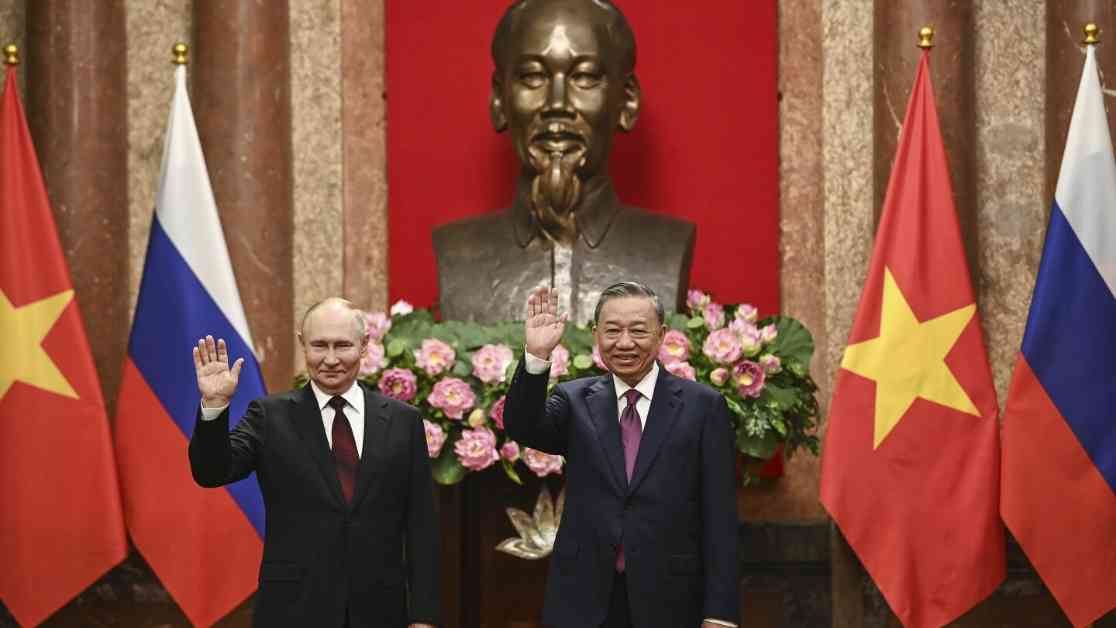Vladimir Putin, the president of Russia, visited Vietnam to strengthen ties with the country despite facing international isolation due to its military actions in Ukraine. Upon arrival in Southeast Asia, Putin was greeted by dignitaries and soldiers in white gala uniforms. His visit came after signing a strategic pact with North Korean leader Kim Jong Un, marking a potential strong connection between the two countries since the Cold War era.
During his visit to Hanoi, Putin planned to meet with Vietnam’s most powerful politician, the General Secretary of the Communist Party, Nguyen Phu Trong, as well as the new president, To Lam, and other officials. The trip drew criticism from the US embassy in Vietnam, reflecting the changing dynamics since Putin’s last visit in 2017.
With Russia facing sanctions led by the US and an arrest warrant issued by the International Criminal Court in 2023 for war crimes, Putin’s recent visits to China, North Korea, and Vietnam are seen as attempts to break international isolation. Concerns have been raised about potential arms deals between Pyongyang and Moscow, which could escalate nuclear threats and missile programs in violation of UN sanctions.
Despite these challenges, Russia remains an important partner for Vietnam, serving as a major supplier of military equipment and providing technology for oil exploration in the disputed South China Sea. This visit signifies Russia’s message of not being isolated in Asia amid the Ukraine conflict, while Vietnam strengthens its traditional relationship with key partners and diversifies ties with newer allies.
Overall, Putin’s visit to Vietnam highlights the complex geopolitical landscape in Southeast Asia, where historical alliances intersect with modern challenges and opportunities for cooperation. As regional dynamics continue to evolve, the strategic partnerships forged during Putin’s visit could have far-reaching implications for both Russia and Vietnam in the Asia-Pacific region.








